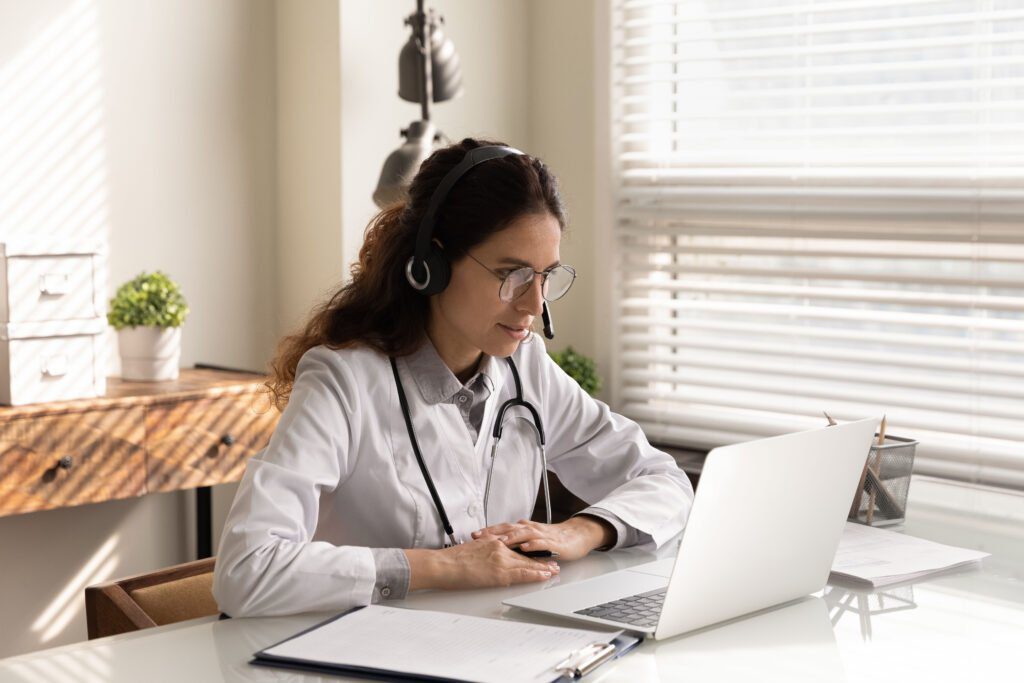
It is easy for doctors and other healthcare professionals to lecture patients, but outcomes are generally improved when people can be actively involved in their own medical decisions. This means they need to be fully informed of the facts, and doctors need to listen to their opinions and concerns.
What is patient education?
Patient education revolves around providing patients with the knowledge and tools they need to make informed decisions about their own health. It can be provided by any healthcare professional, but as pharmacists and GPs tend to be the first port of call for most patients, it often begins in primary care. Patient education can be preventative, advising on lifestyle changes to reduce the risk of developing certain diseases, or it can aim to help patients manage any ongoing health conditions.
Why is patient education important?
For any health program to be successful, it needs willing and active engagement from everyone involved. Patients who are educated on their own health are better able to communicate with doctors, can share in decision making, and will be more likely to follow an agreed treatment plan. Educated patients are more likely to take steps to mitigate risks to their health. They can continue to manage their own care in their daily lives outside of a GPs surgery, and can advocate for themselves as necessary when they need guidance or access to services. This is particularly important for those who have chronic conditions which may need ongoing management over many years, including when their original providers retire or are replaced.
Making patient education successful
It is important that clinicians have adequate time to fully explain any diagnosis or treatment plan, and that they are able to listen to and take seriously any questions that the patient may ask. This is true for pharmacists, therapists and other healthcare professionals as well as GPs. Services such as Clinical Rx can alleviate some pressure by aiding with prescription management and review, as well as clearing backlogs, leaving doctors free to concentrate on giving patients more time and attention. The best outcomes occur when patients, clinicians and other providers can all work together towards a common goal.
Digital and remote services
The increased provision of remote and digital healthcare services has proven empowering for many patients. They are able to communicate with GPs and other healthcare workers without needing an in-person appointment, they can access their personal health records from home, and they are better able to stay informed on the latest advice and research via the internet, including the official NHS website.
By providing some services remotely, such as through Clinical Rx, those that are offered in person at the surgery can be better resourced. There will be more time and more space, ensuring more patients receive the attention and support they deserve, including through increased education provision.
Every clinician should be aiming to empower their patients as much as possible, and this means they should be investing in patient education. Modern digital and remote services allow patients to have more control over their healthcare, which, in turn, means they can better manage their own well-being.


What services does Clinical Rx provide?
In general, clinical pharmacists exist to help with the management of medication. They ensure patients receive the correct prescription, that it works as intended, that potential side effects are monitored, that their dosage is adjusted as needed, and that reviews are carried out as necessary. This is of particular use for those with chronic conditions who require long term management, and who are particularly reliant on the ongoing support of their GP practice.
Utilisation of clinical pharmacists allows the practice as a whole to work more efficiently, ensuring doctors can focus on more complex diagnoses and treatments, and it improves the patient experience by providing them with quicker and more tailored care. Increased efficiency in time, organisation and costs ensures ARRS funding is put to good use, to the benefit of a practice or entire PCN.
There are several benefits to utilising the services of Clinical Rx, in particular, which works as a remote clinical pharmacist provider supporting a range of PCNs and practices as needed on a flexible basis. As well as streamlining prescription management and reviews, relieving pressure on GPs, and improving patient care, it can clear the backlog and help meet QOF targets. Meeting QOF targets, in particular, allows you to be rewarded for good performance, increasing your practice income. This makes ARRS funding a profitable investment as well as one that is effective in terms of patient outcomes.
It can be a difficult decision to decide how best to use ARRS funding, but Clinical Rx can provide specific benefits for patients and doctors both in terms of efficiency and cost effectiveness. This leads to better outcomes for everyone in the PCN or practice, and for the PCN or practice itself.
c-Rx continues to standardise our workflow between practices in the PCN. The pharmacists are key members in our MDT team and are providing high quality services. Our GPs can get a break now! Thank you
Thank you for sorting out our backlog and ensuring our audits were complete ready for our upcoming CQC inspection. Keep up the good work and we look forward to working together in the future.
Fantastic professional service. The team continue to work towards reducing GP workload whilst providing great patient care through medication reviews, prescription requests and pharmacy query support.
For improved outcomes, we believe that communication is vital between the different professions. At Clinical Rx®, we welcome feedback and reviews, so we can continue to offer the best possible service. By working together, the team can better address the complex needs of patients, improve outcomes, and enhance the overall patient experience. Ultimately, the goal is to provide high-quality care in a collaborative and patient-centred approach.
Our Pharmacists are not limited to medication management only. We understand that every GP Practice has different needs at times. Whether it be assistance with protocols, quality improvement work or additional work for CQC inspections – we can help, contact us for more information.







